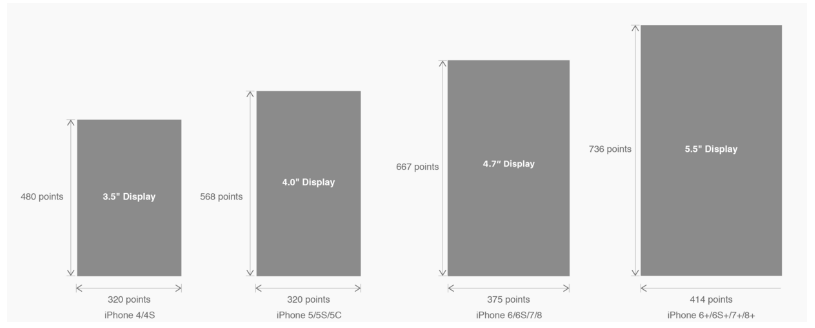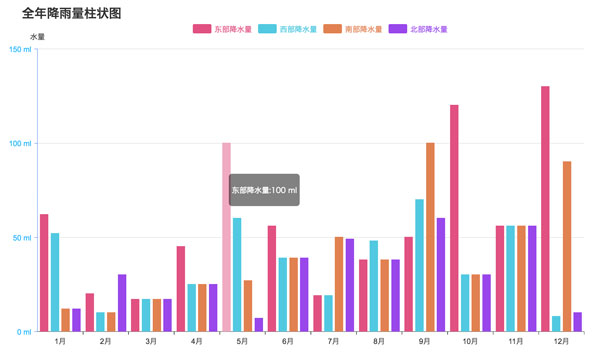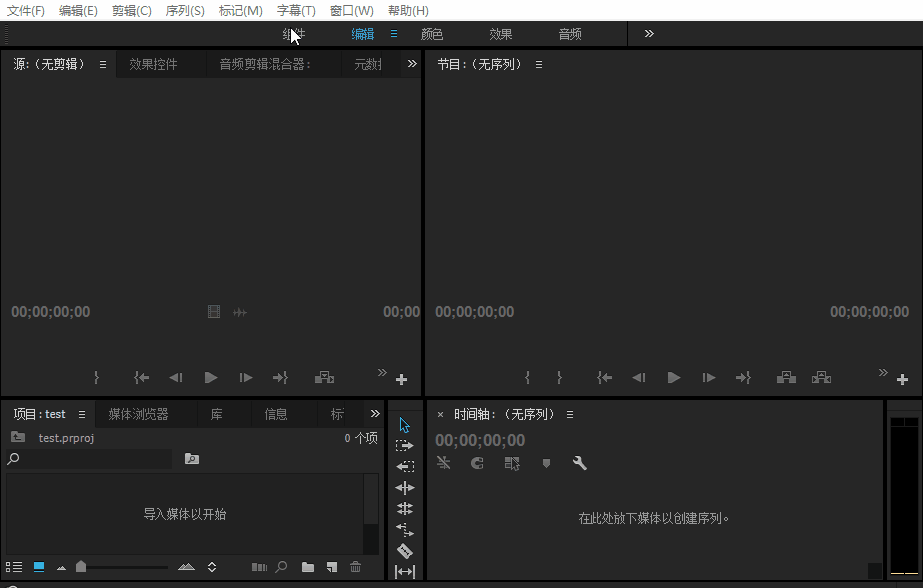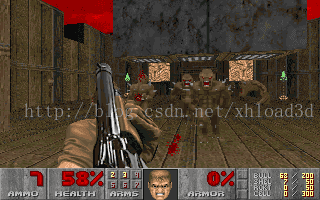html5新增的定时器requestAnimationFrame实现进度条功能
时间:2017-10-20在requestAnimationFrame出现之前,我们一般都用setTimeout和setInterval,那么html5为什么新增一个requestAnimationFrame,他的出现是为了解决什么问题?
优势与特点:
1)requestAnimationFrame会把每一帧中的所有DOM操作集中起来,在一次重绘或回流中就完成,并且重绘或回流的时间间隔紧紧跟随浏览器的刷新频率
2)在隐藏或不可见的元素中,requestAnimationFrame将不会进行重绘或回流,这当然就意味着更少的CPU、GPU和内存使用量
3)requestAnimationFrame是由浏览器专门为动画提供的API,在运行时浏览器会自动优化方法的调用,并且如果页面不是激活状态下的话,动画会自动暂停,有效节省了CPU开销
一句话就是:这玩意性能高,不会卡屏,根据不同的浏览器自动调整帧率。如果看不懂或者不理解,也没有什么关系,这玩意跟浏览器渲染原理有关。我们先学会使用它!
如何使用requestAnimationFrame?
使用方式跟定时器setTimeout差不多,不同之处在于,他不需要设置时间间隔参数
var timer = requestAnimationFrame( function(){
console.log( '定时器代码' );
} );
参数是一个回调函数,返回值是一个整数,用来表示定时器的编号.
<!DOCTYPE html>
<html lang="en">
<head>
<meta charset="UTF-8">
<meta name="viewport" content="width=device-width, initial-scale=1.0">
<meta http-equiv="X-UA-Compatible" content="ie=edge">
<title>Document</title>
<script>
window.onload = function(){
var aInput = document.querySelectorAll( "input" ),
timer = null;
aInput[0].onclick = function(){
timer = requestAnimationFrame( function say(){
console.log( 1 );
timer = requestAnimationFrame( say );
} );
};
aInput[1].onclick = function(){
cancelAnimationFrame( timer );
}
}
</script>
</head>
<body>
<input type="button" value="开启">
<input type="button" value="关闭">
</body>
</html>
cancelAnimationFrame用来关闭定时器
这个方法需要处理兼容:
简单的兼容:
window.requestAnimFrame = (function(){
return window.requestAnimationFrame ||
window.webkitRequestAnimationFrame ||
window.mozRequestAnimationFrame ||
function( callback ){
window.setTimeout(callback, 1000 / 60);
};
})();
如果浏览器都不认识AnimationFrame,就用setTimeout兼容.
运用3种不同的定时器(setTimeout, setInterval, requestAnimationFrame)实现一个进度条的加载
一、setInterval方式:
<!DOCTYPE html>
<html lang="en">
<head>
<meta charset="UTF-8">
<meta name="viewport" content="width=device-width, initial-scale=1.0">
<meta http-equiv="X-UA-Compatible" content="ie=edge">
<title>Document</title>
<style>
div{
width:0px;
height:40px;
border-radius:20px;
background:#09f;
text-align:center;
font:bold 30px/40px '微软雅黑';
color:white;
}
</style>
<script>
window.onload = function(){
var oBtn = document.querySelector( "input" ),
oBox = document.querySelector( "div" ),
timer = null, curWidth = 0,
getStyle = function( obj, name, value ){
if( obj.currentStyle ) {
return obj.currentStyle[name];
}else {
return getComputedStyle( obj, false )[name];
}
};
oBtn.onclick = function(){
clearInterval( timer );
oBox.style.width = '0';
timer = setInterval( function(){
curWidth = parseInt( getStyle( oBox, 'width' ) );
if ( curWidth < 1000 ) {
oBox.style.width = oBox.offsetWidth + 10 + 'px';
oBox.innerHTML = parseInt( getStyle( oBox, 'width' ) ) / 10 + '%';
}else {
clearInterval( timer );
}
}, 1000 / 60 );
}
}
</script>
</head>
<body>
<div>0%</div>
<p><input type="button" value="ready!Go"></p>
</body>
</html>

相关文章
 有关HTML5页面在iPhoneX适配问题这篇文章主要介绍了有关HTML5页面在iPhoneX适配问题,需要的朋友可以参考下
有关HTML5页面在iPhoneX适配问题这篇文章主要介绍了有关HTML5页面在iPhoneX适配问题,需要的朋友可以参考下 html5中canvas图表实现柱状图的示例本篇文章主要介绍了html5中canvas图表实现柱状图的示例,本文使用canvas来实现一个图表,小编觉得挺不错的,现在分享
html5中canvas图表实现柱状图的示例本篇文章主要介绍了html5中canvas图表实现柱状图的示例,本文使用canvas来实现一个图表,小编觉得挺不错的,现在分享 Adobe Html5 Extension开发初体验图文教程Adobe公司出品的多媒体处理软件产品线较多,涵盖了音视频编辑、图像处理、平面设计、影视后期等领域。这篇文章主
Adobe Html5 Extension开发初体验图文教程Adobe公司出品的多媒体处理软件产品线较多,涵盖了音视频编辑、图像处理、平面设计、影视后期等领域。这篇文章主 基于HTML5的WebGL经典3D虚拟机房漫游动画这篇文章主要介绍了基于HTML5的WebGL经典3D虚拟机房漫游动画,需要的朋友可以参考下
基于HTML5的WebGL经典3D虚拟机房漫游动画这篇文章主要介绍了基于HTML5的WebGL经典3D虚拟机房漫游动画,需要的朋友可以参考下 html5实现移动端适配完美写法这篇文章主要介绍了html5实现移动端适配完美写法,需要的朋友可以参考下
html5实现移动端适配完美写法这篇文章主要介绍了html5实现移动端适配完美写法,需要的朋友可以参考下 HTML5响应式(自适应)网页设计的实现本篇文章主要介绍了HTML5响应式(自适应)网页设计的实现,小编觉得挺不错的,现在分享给大家,也给大家做个参考
HTML5响应式(自适应)网页设计的实现本篇文章主要介绍了HTML5响应式(自适应)网页设计的实现,小编觉得挺不错的,现在分享给大家,也给大家做个参考